Top 12 Immune Support Strategies to Thrive in Life
Your immune system is a complex system that protects you from viruses, bacteria, parasites, and other pathogens. It is a complex system that’s essential for your health and survival. Optimal immune support is important for your health at all times. As we face more stressful experiences it is even more important to strengthen your body with good immune support strategies.
In this article, you will learn more about the immune system and the importance of supporting a balanced immune response. While these 12 strategies are not supported by the FDA as a treatment for any health condition, they can be highly supportive of your body’s overall wellness.
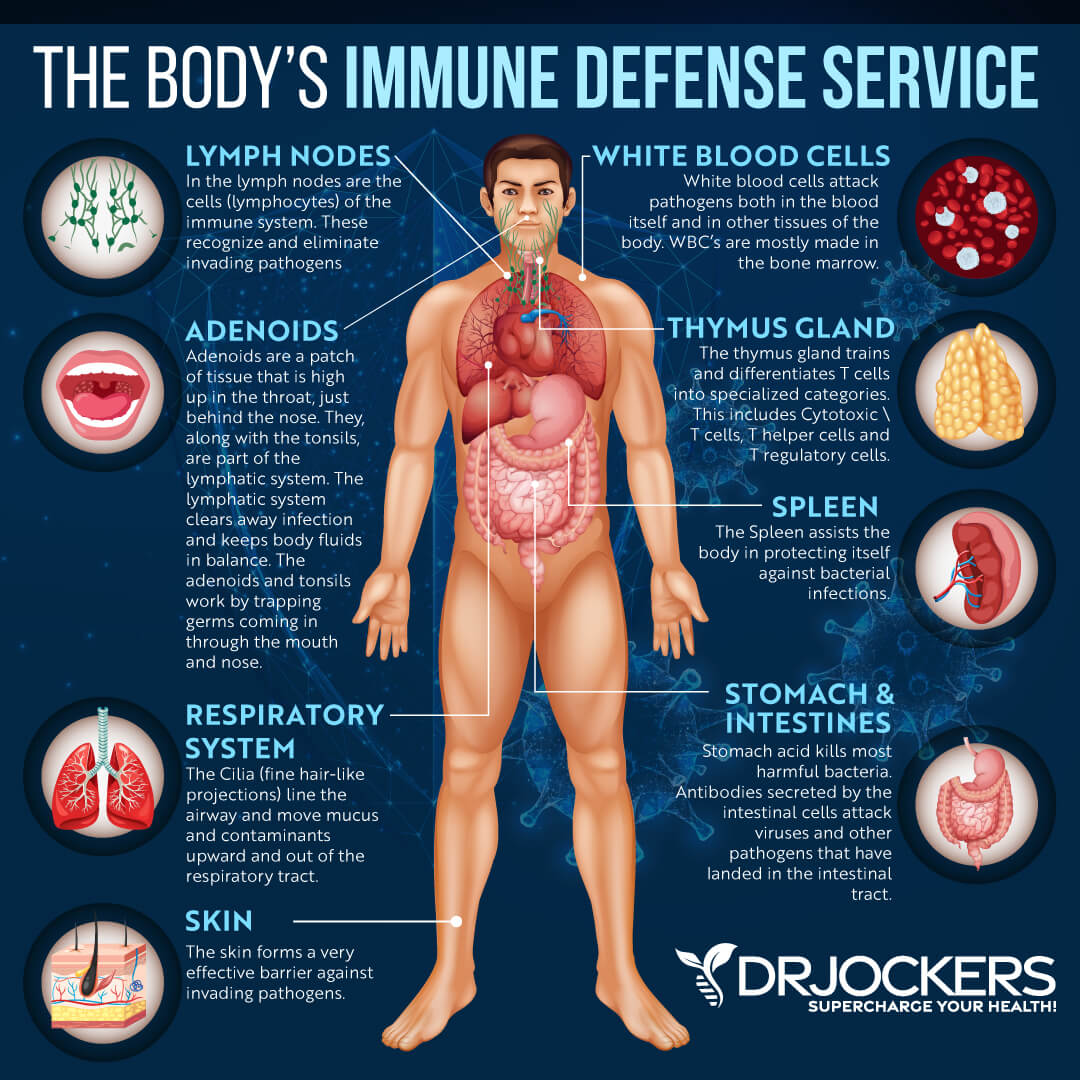
What is the Immune System
Your immune system is critical to your overall health and survival. Your immune system keeps you healthy and protects your body from viruses, bacteria, parasites, fungi, and other pathogens.
If you want to understand your immune system, imagine a network of cells and tissues spread throughout your body involving your cells, tissues, and organs. Your immune system is on a constant lookout for invaders and ready to attack and protect you through a so-called immune response. It is your defense system and inner army of protection (1, 2, 3, 4).

Parts of the Immune System
White blood cells, or leukocytes, are some of the main characters in your immune system. They are found in various lymphoid organs, including your thymus, spleen, bone marrow, and lymph nodes. They circulate across your body through blood vessels and lymphatic vessels. They are on the lookout for pathogens, and when noticing one, they multiply and urge others to do the same.
There are two kinds of leukocytes. Phagocytes, including mast cells, monocytes, macrophages, and neutrophils, absorb and break down pathogens by eating them. Lymphocytes recognize previous invaders and attack them if they show up. B lymphocytes make antibodies and let the T lymphocytes know when pathogens show up. T lymphocytes kill compromised cells and alert other leukocytes for help (1, 2, 3, 4).
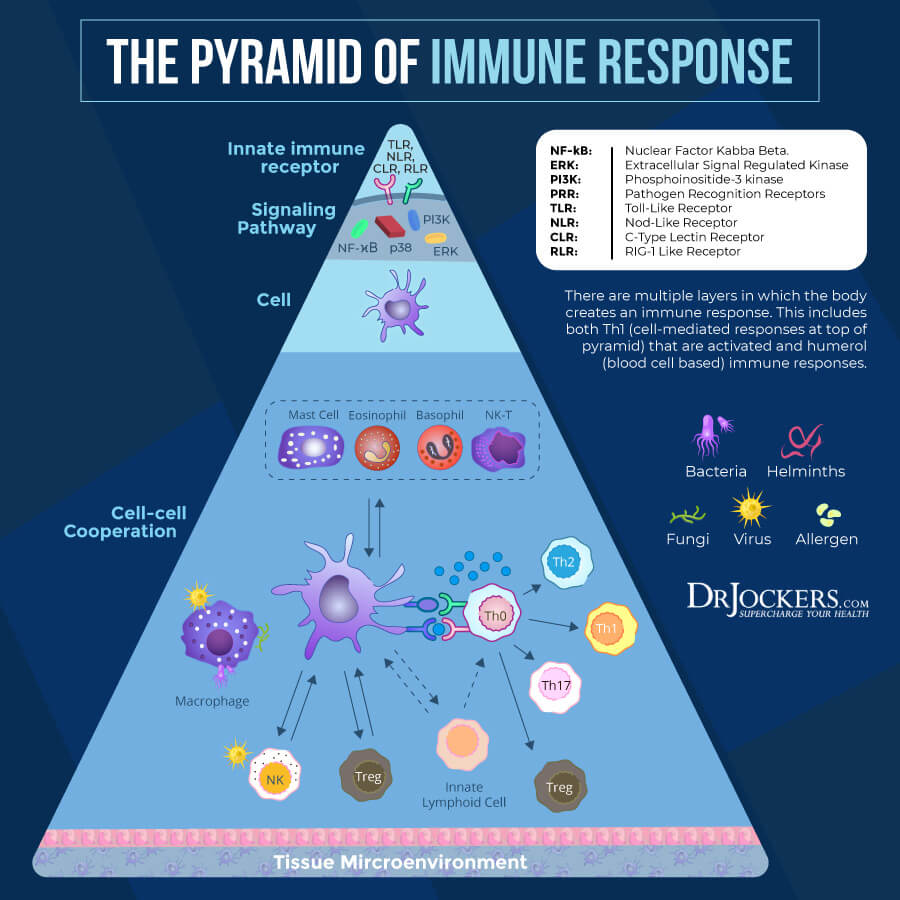
Immune Response Process
Antigens are any substances that are considered to be an invaders. They prompt an immune response. They include viruses, bacteria, fungi, toxins, or other foreign materials. When your B lymphocytes, or B cells, spot an antigen, they release antibodies. Antibodies are part of the immunoglobin family and are a type of protein that can lock antigens.
Each antibody has a special function and can help to protect you from a specific antigen. For example, you have different antibodies for the common cold than for the flu or pneumonia. If we encounter a new virus, we don’t have antibodies to it, so it can potentially cause more harm until our body adapts and creates appropriate antibodies is that because it is a new virus. Antibodies attach to antigens and mark them as cells called phagocytes to kill them.
T lymphocytes, also called T cells or Th cells help to coordinate the immune response. They communicate with cells, and prompt B cells to produce antibodies and phagocytes to kill antigens. Killer T cells or cytotoxic T lymphocytes can also fight other cells and are especially important for fighting viruses and destroying cells infected by a virus (1, 2, 3, 4).
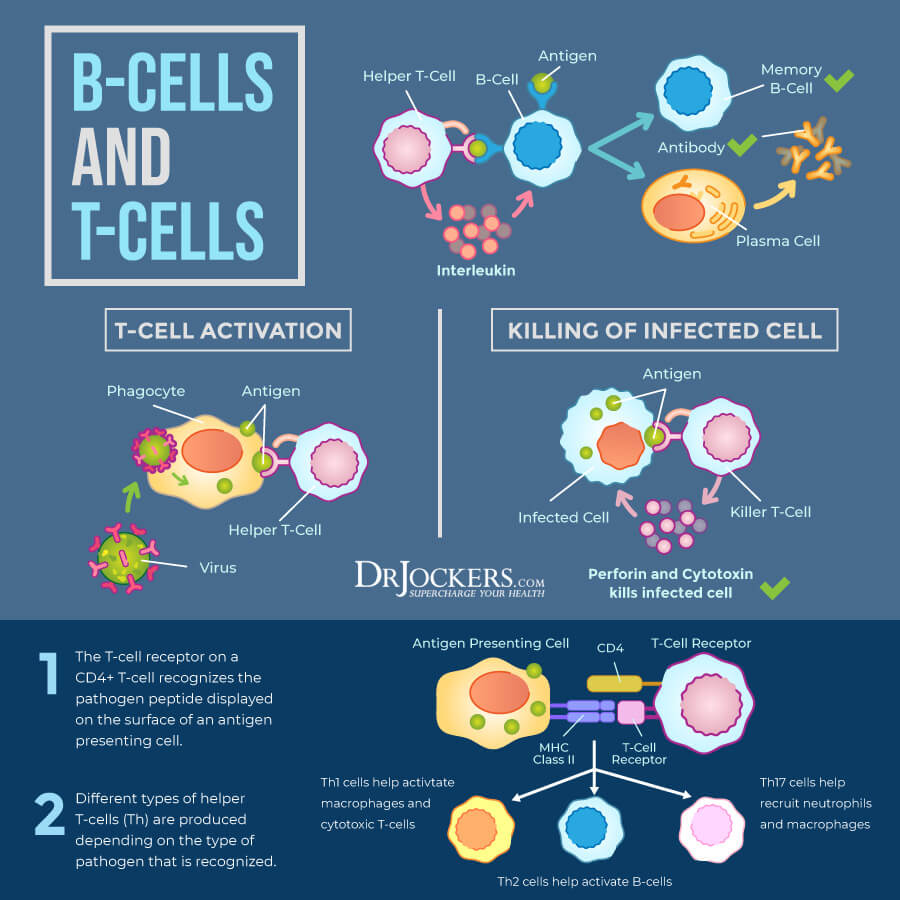
Types of Immunity
Once your body creates an antibody it stays in your body forever. This storage is the reason why you cannot get chickenpox twice and helps your body fight other infections and illnesses. This protection from your immune system is called immunity.
There are several types of immunity:
- Innate immunity: This is the immunity you are born with that allows your body to fight pathogens until you develop adaptive immunity.
- Adaptive immunity: This form of immunity is also called acquired immunity. It is a library of antibodies that your body develops through being exposed to and fighting off pathogens throughout your life.
- Passive immunity: This is a form of immunity that includes a baby’s protection through the placenta or breast milk and lasts for a certain period to protect the body until it can defend itself.
- Immunization: Immunization exposes your body to antigens and weakened pathogens to protect your body from specific infections and illnesses in the future.
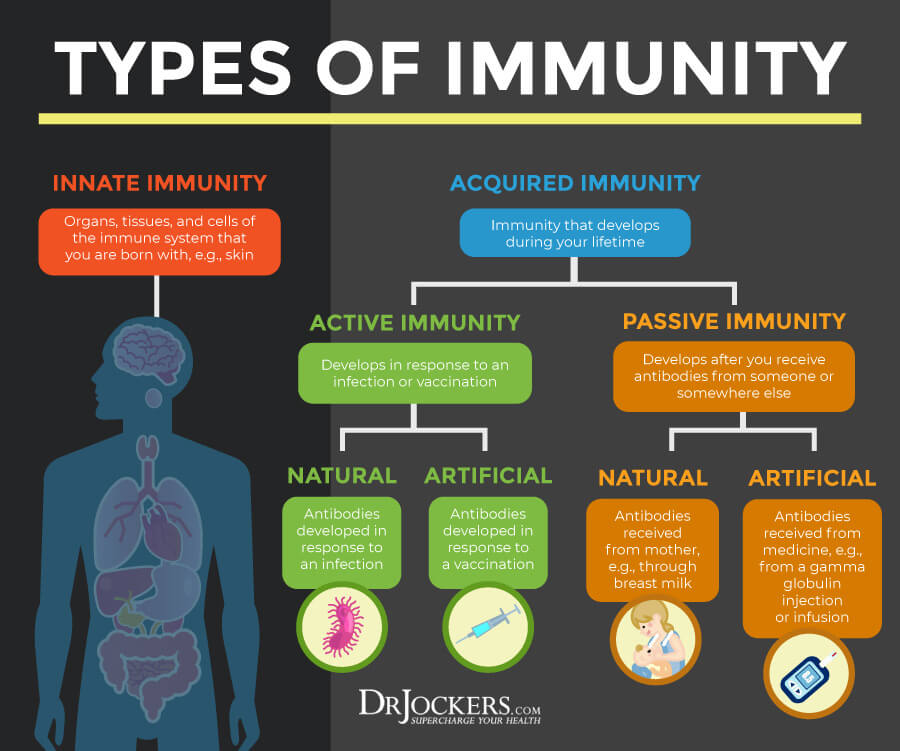
Immune System Problems
Your immune system is a very complex system, hence there are various ways it can get out of balance and become compromised.
Immunodeficiency
You may develop an immunodeficiency which means that one or several parts of your immune system cannot function optimally. Immunodeficiencies may develop for a variety of reasons, including genetic defects from birth, age, obesity, malnutrition, infections, and alcoholism. AIDS is a form of immunodeficiency acquired from an infection with the HIV virus.
Autoimmunity
You may develop autoimmunity or an autoimmune condition. This means that your immune system attacks and destroys cells in your body mistaking them for pathogens or compromised cells. Autoimmune conditions include Celiac disease, Hashimoto’s disease, rheumatoid arthritis, type 1 diabetes, and lupus.
Hypersensitivity
Hypersensitivity means that your immune system overreacts to something and damages healthy cells. Anaphylactic shock due to an allergen is one example of this.
Even if you don’t have any of these immune system problems, unhealthy lifestyle and dietary choices, toxins, and stress can weaken your immune system and thus compromise your immune system response making you more vulnerable to illness and making recovery more difficult.
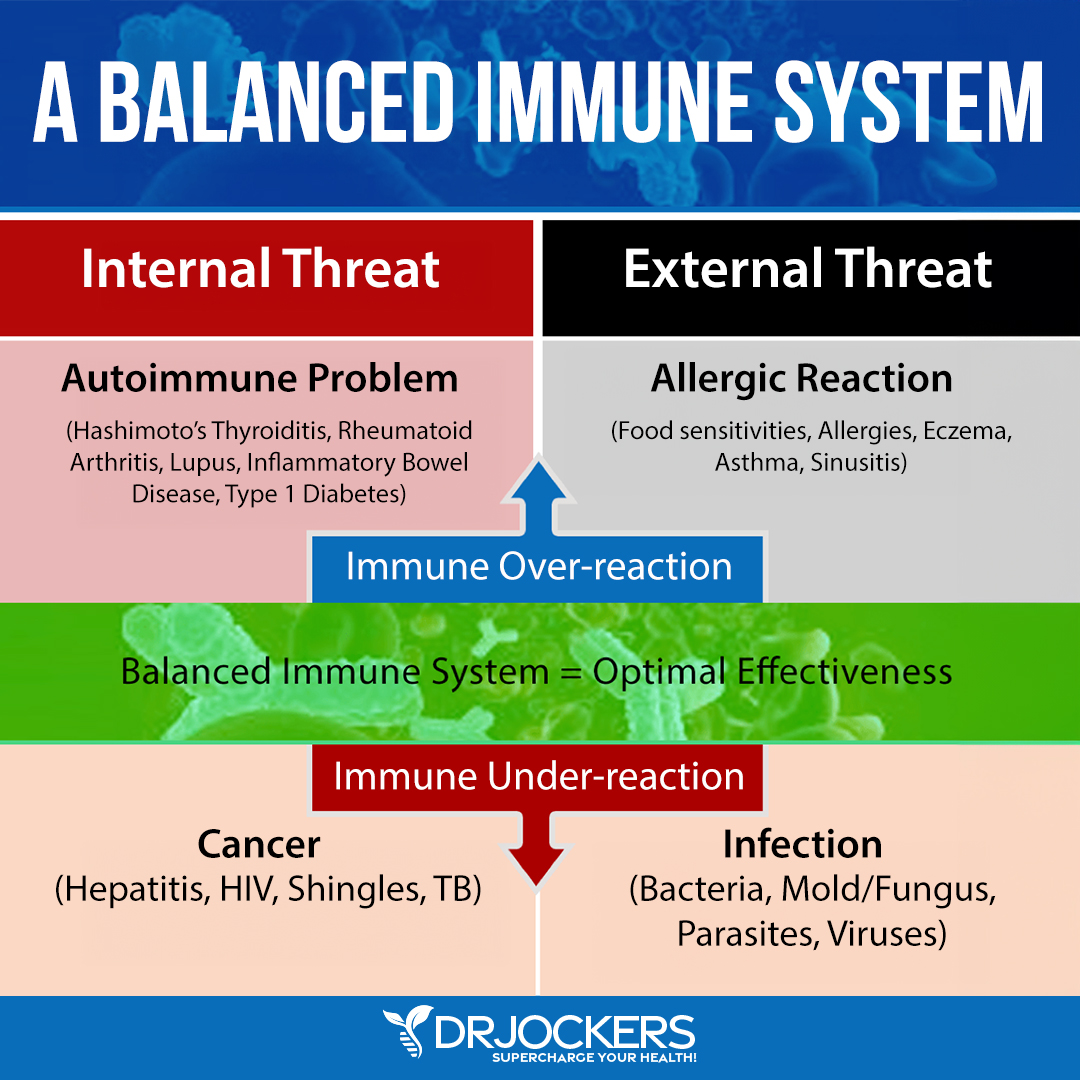
Supporting a Balanced Immune Response
Your immune system is a complex entity that works hard every moment of every day to protect you from infections and illnesses. When it is out of balance, suppressed, or overstimulated, it cannot function optimally.
Your T cells help to coordinate immune regulation and kill compromised cells. However, T cell function decreases as you age and lowers immunity, especially in older adults. This is why respiratory infections, influenza, and pneumonia cause more risk and are among the leading causes of death in those over 65. Unhealthy lifestyle choices, including an inflammatory diet, lack of exercise, smoking, inadequate sleep, chronic stress, and improper hygiene can also compromise your immunity and make you more prone to disease.
Supporting a balanced immune response is critical for your health and well-being. The good news is that it is never too late to start making dietary and lifestyle changes to support proper T cell function and immune regulation (5, 6, 7, 8).

Top 12 Immune Support Strategies
Supporting your immune system is important no matter what. You want your body to be strong and healthy so that it can protect you from infections, illness, and disease. There are certain strategies that promote optimal immune system expression.
It is important to remember that none of these strategies are supported by the FDA for the treatment or prevention of any health condition. With that said, it is my personal opinion and the opinion of many other health experts that they support and improve your immune response.
Be Grateful & Positive
Chronic stress can be detrimental to your immune system, increase inflammation, and make you more vulnerable to infections and illness. Being grateful and keeping a positive mindset is more important than ever before to lower your stress level and protect your immune system. Keep a daily gratitude journal. Stop several times a day to be thankful for the good things. You can even set a timer on your phone to remind you to practice a moment of gratitude.
Engage in uplifting activities, such as dancing in your living room, playing with your kids or pets, watching a comedy, listening to music, or reading your favorite book. Say a prayer or practice any spiritual activities that feel right for you. If you need help in developing a positive mindset, seek help from a counselor, therapist, or life coach. Many are available online.
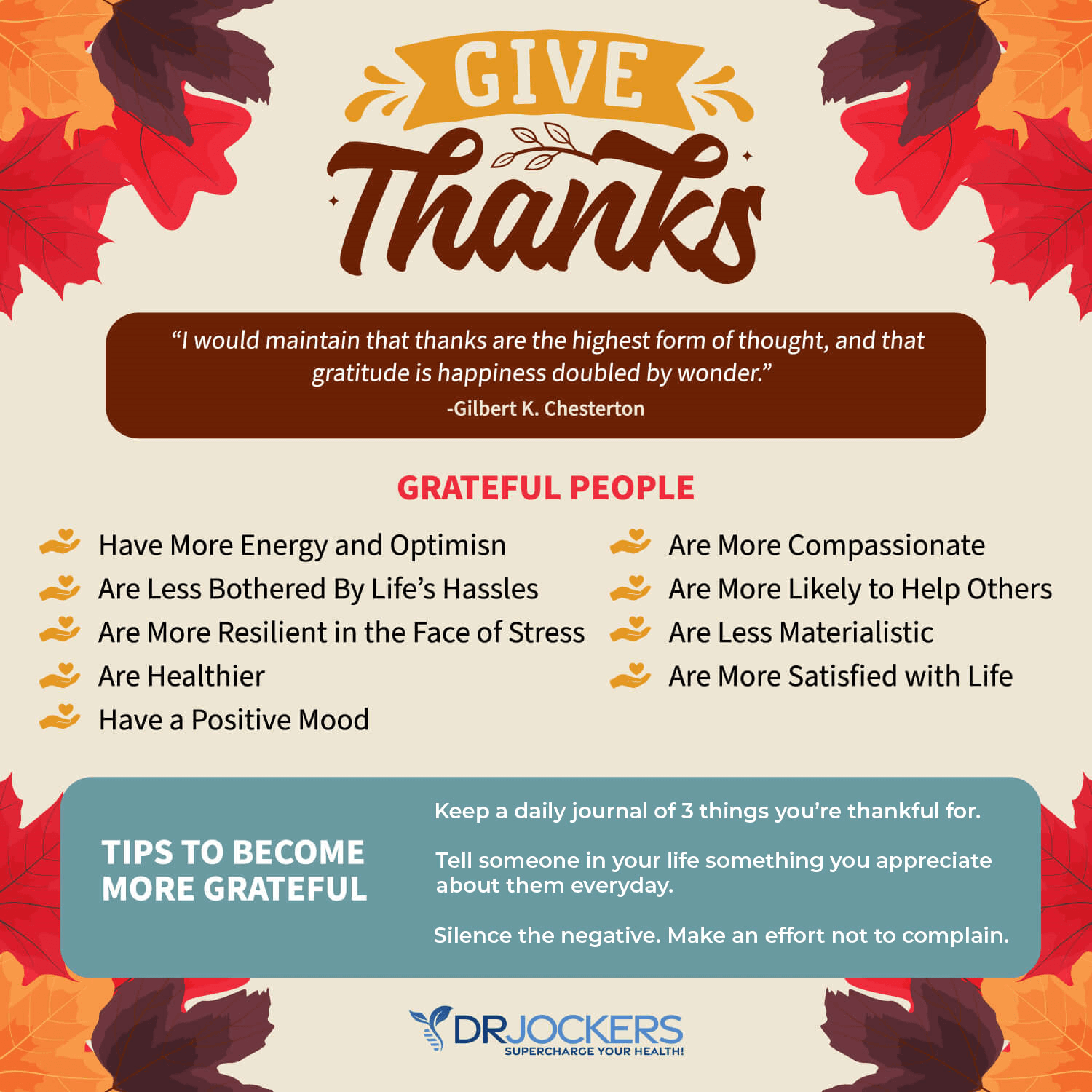
Prioritize Good Sleep for Immune Support
Getting poor sleep on a regular basis can lead to increased stress, high inflammation, and lower immunity. Make sleep a priority. Make sure to go to bed and wake up around the same time each day to help your circadian rhythm. Develop a nighttime routine that supports relaxation.
Avoid electronics and instead try board games, reading, relaxing music, crossword puzzles, crafts, coloring, meditation, and journaling. Make sure your bedroom is a safe sanctuary with a comfortable bed, bedding, and pillows (9).

Avoid Sugar & Processed Foods
Sugar and processed foods are extremely inflammatory to your body. Chronic inflammation can lead to poor immune function which increases your risk of infection and disease.
Avoid processed foods and foods that are high in refined sugar, refined oils, gluten, conventional dairy, artificial ingredients, coloring, and additives. Choose an anti-inflammatory diet rich in greens, vegetables, fruits, clean protein, and healthy fats (10).
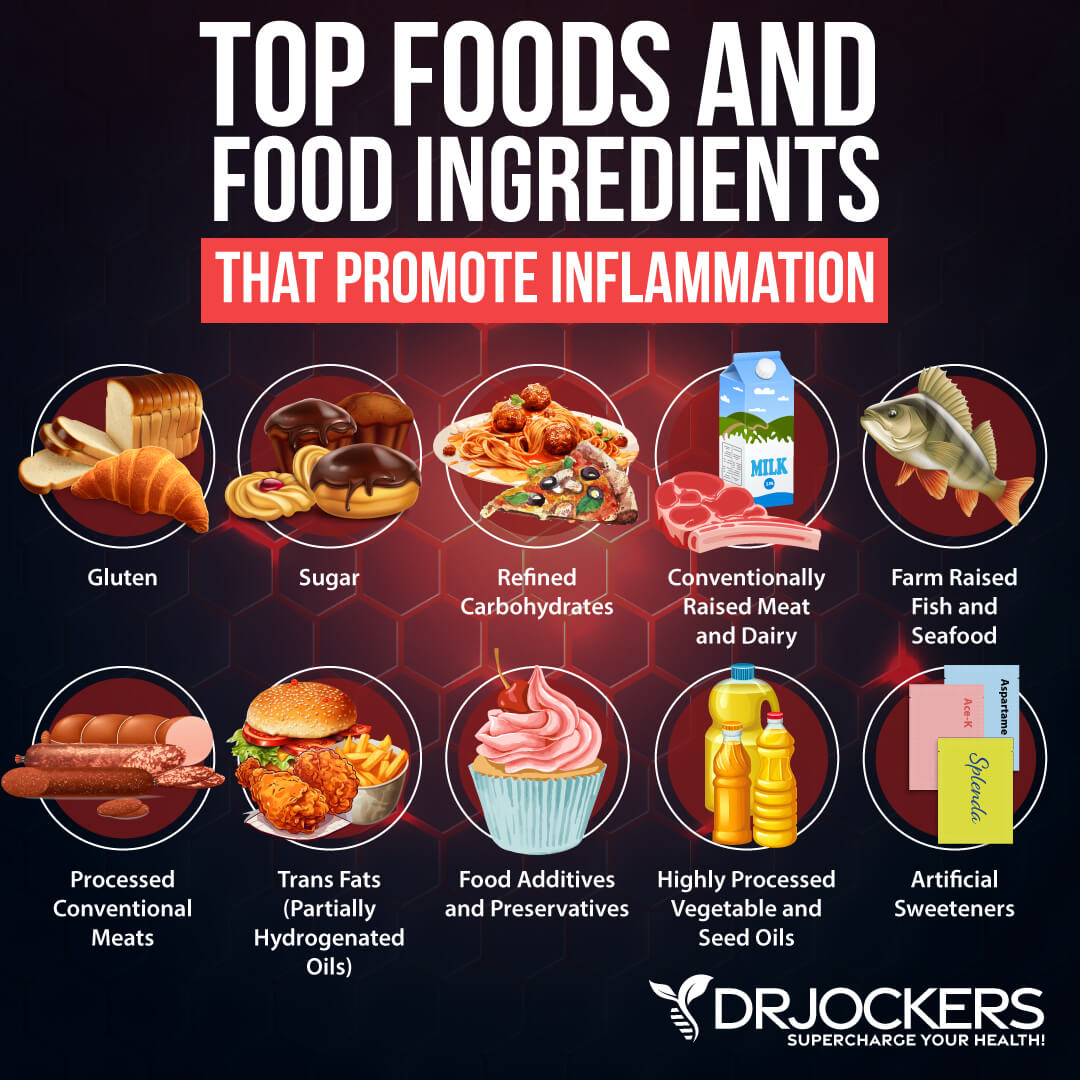
Practice Intermittent Fasting for Immune Support
Intermittent fasting is a strategy that involves fasting (not eating) for a period of time followed by a period of feasting (eating). Intermittent fasting increases autophagy, cellular rejuvenation, immune system function, and genetic repair. It reduces inflammation and the risk of disease (11, 12, 13, 14, 15, 16, 17, 18, 19).
I recommend that you start out with a Simple Fast that involves 12 hours of fasting including your overnight sleep. Slowly increase your fasting time and graduate to a Strong Fast or 16:8 Fast with a 16-hour fasting window. I explain different fasting strategies and how to get started with intermittent fasting in this article.
You may even want to go to eating 2 meals in a 6-hour window, with an 18-hour fasting window. Even if you only do this one or two days a week, it can be extraordinarily helpful. I think a sweet spot is a 16-18 hour fast, 4-5 days a week, and one day where you do a 20-24 hour fast.

Consume Immune Support Enhancing Foods
Eat an immune-supporting, anti-inflammatory, nutrient-dense diet. Focus on organic greens including chard, kale, and spinach, vegetables, including cucumber, celery, and broccoli, herbs and spices including turmeric, ginger, basil, and mint, low glycemic index fruits including lemon, lime, and berries, healthy fats including avocado, coconut oil, extra virgin olive oil, grass-fed butter, and ghee, clean protein including grass-fed beef, free-range poultry, and eggs, wild-caught seafood, fermented foods including kimchi, sauerkraut, and kefir, and medicinal mushrooms including reishi, cordyceps, and turkey tail.
Choose home-cooked meals whenever possible. I would highly encourage you and your family to start cooking more and to try new recipes that support the immune system. My recipe directory is full of delicious, immune-supporting options that you and your family will love (10).
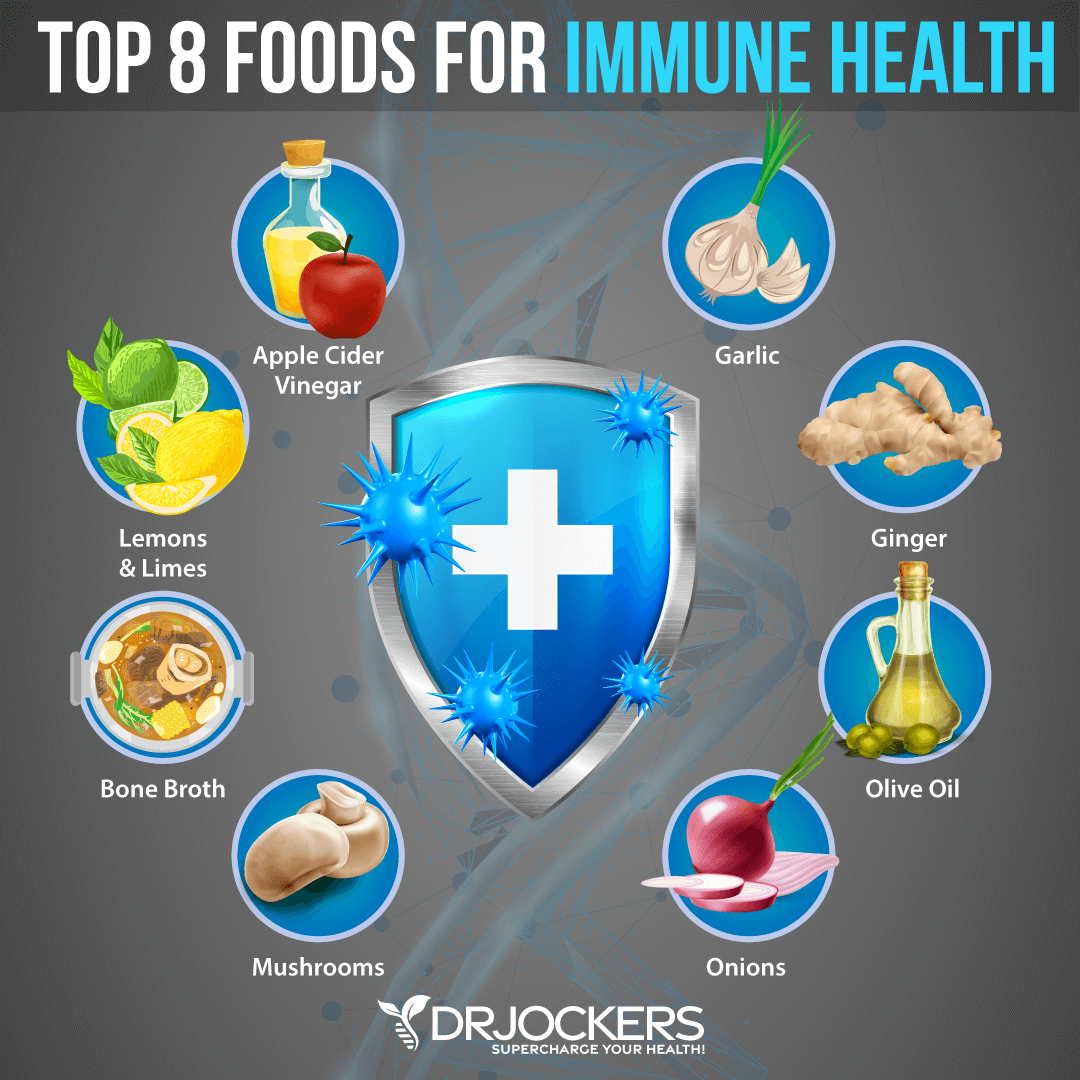
Fresh Air, Sunshine, and Grounding
Being outdoors has endless benefits. Being in the sunshine can increase your vitamin D levels which are important for optimal immune function. Sunshine can also improve your mood, reduce stress, and elevate depression and anxiety.
Breathing the fresh air helps to clear your lungs. Grounding, standing, or walking on dirt, grass, or sand, can help you connect to the earth and improve your physical and mental health (20, 21).
Be sure to step outside and spend time in your garden, yard, balcony, or street in front of your house or apartment as much as you can. Open the windows to let the fresh air in. Grow some plants to allow nature to be present inside. Go for a walk or a jog while keeping the recommended social distance to uplift your spirit and improve your immune system during this time.

Regular Movement & Exercise
Regular movement and exercise are particularly important for a healthy immune system. It improves your lung function, cardiovascular health, mood, and energy levels while reducing inflammation and building strength and muscle. Make sure to exercise 20–30 minutes a day.
I am a huge advocate of resistance training because it helps to optimize your hormones, build lean body tissue, and burn fat. Strengthening your lean body tissue will help you the most with your metabolic health. I recommend doing some form of resistance training three to five times weekly.
You may also mix up cardiovascular exercises, such as walking, running, biking, or dancing, as well as body training exercise routines like yoga, Pilates, kettlebell, etc.
Even if you are home, make sure to take time throughout the day to stretch, do a yoga sequence, walk around the room, dance to your favorite songs, or if possible, go outside for a short walk or try gardening.
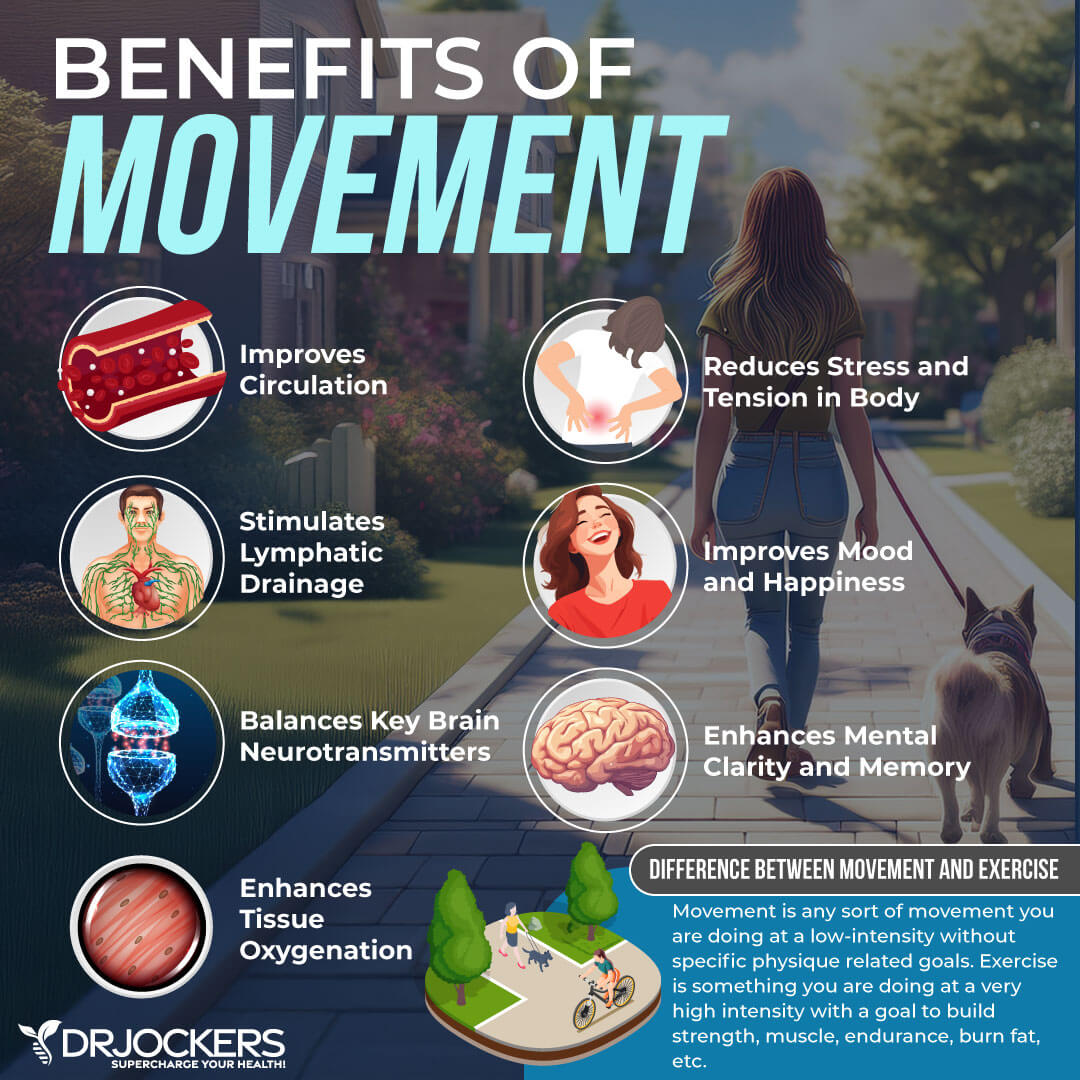
Good Hydration & Drink Herbal Teas
Good hydration is essential for a healthy immune function. I recommend that you drink 8 to 10 glasses of clean water minimum a day. If you are exercising, spend time outside in the sun. If you are recovering from an illness or infection, or otherwise feeling dehydrated, drink more. Listen to your body.
I recommend systems like Aquatrue or the Berkey system for low-cost filtration. The best water is the UltraLux Triple Action Hydrogen Water Machine which is what I use at home, as it is powered by molecular hydrogen which reduces oxidative stress in the body and improves immune function.
Add a slice of lime for some extra flavor. Additionally, I recommend drinking herbal tea as well. Echinacea, ginger, and peppermint are fantastic options for immune support (10).

Optimize Vitamin D Levels
Vitamin D is essential for healthy immune function. While the sun is your best friend for boosting vitamin D, chances are you don’t spend enough time outside in the sun to meet your needs.
Vitamin D-rich foods, including fatty fish, beef liver, and egg yolks offer some support, but not enough to optimize your vitamin D levels (22). Pairing vitamin D3 with vitamin K2 helps improve calcium absorption and inflammation control.
I recommend taking a vitamin D3 supplement with at least 3,000-5,000 IUs of vitamin D3 and at least 90 mcg of vitamin K2. I highly recommend this Vitamin D3/K2 Power. This supplement supports your immune, skin, cardiovascular, and bone health.
Typically, taking 1,000 IU per 25 lbs. of body weight will help you get your levels into a healthy range. You want to test your vitamin D levels at least 1-2 times each year and get your levels between 50-100 ng/ml. It has been hypothesized that a therapeutic level for major health conditions is going to be between 70-100 ng/ml.

Take Probiotics & Digestive Enzymes
Your gut health and immune health are interconnected. Keeping your gut microbiome balanced is absolutely critical for a healthy immune system. For digestive support, I recommend Super D-Zyme, a powerful digestive enzyme that benefits your digestion, enhances nutrient absorption, and helps the breakdown of lactose and polysaccharides. Take it daily with each meal.
For microbiome balance, I recommend taking a good probiotic supplement such as MegaSporeBiotic. Take it daily for optimal gut and immune health benefits (23, 24).

Use Vitamin C & Zinc for Immune Support
Vitamin C and zinc are both essential for immune health. Vitamin C-rich foods include lemon, lime, oranges, mandarins, grapefruits, guava, strawberries, papaya, pineapples, kiwi, sweet green pepper, broccoli, and Brussels sprouts.
Foods that are rich in zinc include spinach, pumpkin seeds, salmon, and grass-fed dairy. Additionally, I use Super C and Zinc Charge to help support my immune system (25, 26, 27, 28).
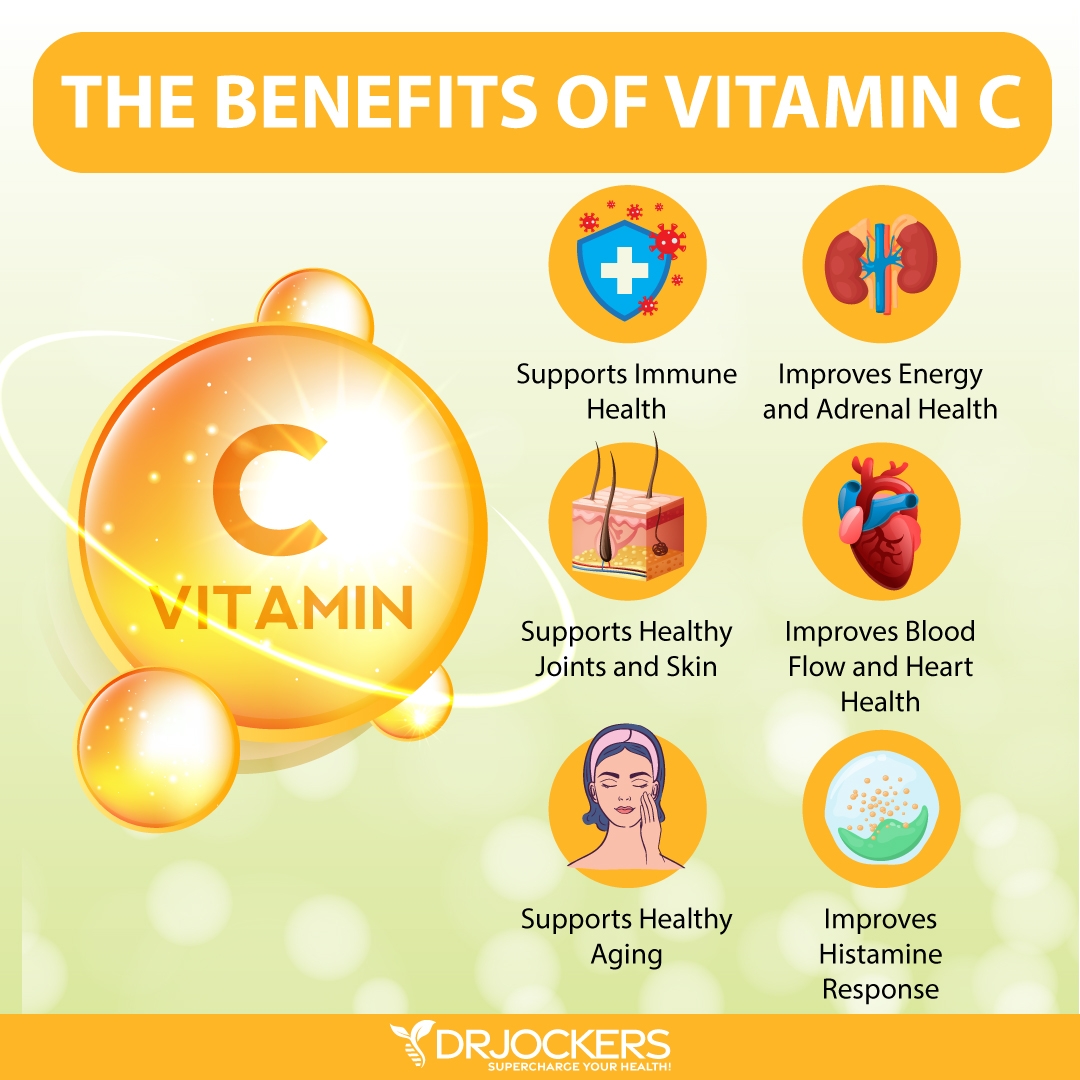
Use an Infrared Sauna For Immune Support
Infrared saunas have countless health benefits. They support detoxification, improve immune health, reduce stress, and improve energy. To learn more about the benefits of infrared saunas, read this article.
For optimal immune support and health benefits, I recommend an infrared sauna blanket by HigherDOSE as a great affordable option with safe, deep penetrating, detoxifying, and immune-supporting benefits (29, 30, 31, 32).
This is also low EMF and is designed by expert Sauna maker Dr Raleigh Duncan. Your head stays out of this which most people find really comfortable and their heat tolerance increases so they can stay in longer and get more benefits from the sauna therapy.
The sauna blanket has a double-sided zipper for easy in and out has non-toxic vegan leather for extra comfort and uses tourmaline, clay, and charcoal. The tourmaline and clay layers generate negative ions to help buffer oxidative stress, the charcoal layer binds to pollutants and the clay layer emits negative ions. You have easy control access with a controller to turn it on and off. Use the coupon code DRJOCKERS15 to save 15% off on HigherDOSE products including the Sauna Blanket.

Bonus Strategy: 3-Day Fast or Partial Fast
If you are not feeling well or simply want an extra immune system boost, I recommend that you do a 3-day fast or a partial fast. If you are embarking on a 3-day fast, I recommend reading this article to learn about the benefits and best strategies.
This sort of fast has been shown to stimulate deep levels of cellular healing the breakdown of old senescent immune cells and the generation of new, healthy immune cells. I only recommend 3-day water fasts if you are already experienced with and do well on longer intermittent fasting strategies.
If you are not yet physically or mentally ready for a 3-day fast, a partial fast is a fantastic alternative. You may choose to do a 3-day green juice fast, as explained here, or a bone broth fast, as discussed here. Make sure to follow an immune-supporting, nutrient-dense diet as well as immune-supporting lifestyle strategies after your fast (33).

The Fasting Transformation Book
If you want to improve your metabolic health and burn fat, improve your brain and overall energy levels…intermittent and extended fasting are incredibly powerful strategies.
That is why I want to introduce you to my best-selling book, The Fasting Transformation. It goes into the most recent scientific research and strategies for implementing intermittent and extended fasting into your life.
This book is the best book on fasting the world has ever seen and I have read them all! It is now, my great honor to present this to you and I am deeply appreciative of your support!
Inflammation Crushing Ebundle
The Inflammation Crushing Ebundle is designed to help you improve your brain, liver, immune system and discover the healing strategies, foods and recipes to burn fat, reduce inflammation and thrive in life!
As a doctor of natural medicine, I have spent the past 20 years studying the best healing strategies and worked with hundreds of coaching clients, helping them overcome chronic health conditions and optimize their overall health.
In our Inflammation Crushing Ebundle, I have put together my very best strategies to reduce inflammation and optimize your healing potential. Take a look at what you will get inside these valuable guides below!
Final Thoughts on Immune Support
Our immune system protects us from various environmental challenges we encounter each day. It is important to think about what you can do to help take stress off of the immune system and allow it to function optimally.
In this article, I provided you with my top 12 immune support strategies to help protect your health and improve your body’s wellness. If you want to work with a functional health coach, I recommend this article with tips on how to find a great coach.
On our website, we offer long-distance functional health coaching programs. For further support with your health goals, just reach out—our fantastic coaches are here to support your journey.







Excellent Article – I forwarded to all 3 of my kids!
Glad to hear that!
I giving my kids turmeric & probiotic, and herbal tea, high dosage of vitamin C, fish oil.
Great to hear that!
Probably grapefruit seed oil, and silver colloid known as works against 100 kind of viruses.
Yes these are good things to have on hand!
People with diabetes and some other diseases cannot fast for long periods.
Yes if they do it correctly they can practice intermittent fasting. Here is a helpful article: https://drjockers.com/fasting-autoimmune-diseases/
Very Helpful. Vital Health information every person must know about Thank you so much.
Thank you for this helpful article. With the new COVID vaccine, is it safe to assume that if one’s overall immune function is compromised, it won’t be able to do its job of identifying the “threat” introduced by the vaccine, thereby, automatically disabling the vaccine’s intended action? (If so, doesn’t it render the vaccine detrimental because of the antigens it is injecting into the cells?)
Or, since there are different types of immunity as you discussed in this article, the ‘adaptive/ active immunity’ can function independently (thereby, supporting the vaccine’s mode of action no matter what), even if the innate immunity has been compromised already?
The vaccine pushes the Th2 arm of the immune system and often creates an immune imbalance. We don’t recommend getting vaccines.
Thanks. I don’t plan to vaccinate. 66 years old and practice daily immune support. Only if mandatory by my employer or else lose my job I’ll concede. Why can I do to fight off vaccine effects?
Yes here is a helpful article on that Elizabeth: https://drjockers.com/vaccine-adjuvants/
If a person can get blood-tested to check for Vitamin D level, what is the optimal level to work toward?
The optimal level is 50-100 ng/ml. https://drjockers.com/vitamin-d-deficiency/
Two other things that help me stay healthy are Virgin Coconut Oil and Astaxanthin.
Yes great tools to use as well!
Hello Dr Jockers,
My husband is taking high doses of D3/K2, but he still can not raise his low level of vitamin D (last test came at 30). He also takes many other vitamins and supplements, He has a very healthy strict diet (he has ALS). What he can do to raise it? Thanks.
Hello Claudia, yes here is a helpful article on Vitamin D resistance: https://drjockers.com/vitamin-d-resistance-and-autoimmunity/
Thank you, this is an article most people will find easy to understand. I am going to share it with my family. Blessings to all. Robyn
Great to hear that! Thank you Robyn! Blessings!
thank you, great article, shared online everywhere.
Another wonderful article that will save many lives! I was wondering if these suggestions still apply to people with mass cell activation syndrome. I know you mentioned it at the beginning of the article.
Yes and here is a helpful article on Mast Cell: https://drjockers.com/mast-cell-activation-syndrome/